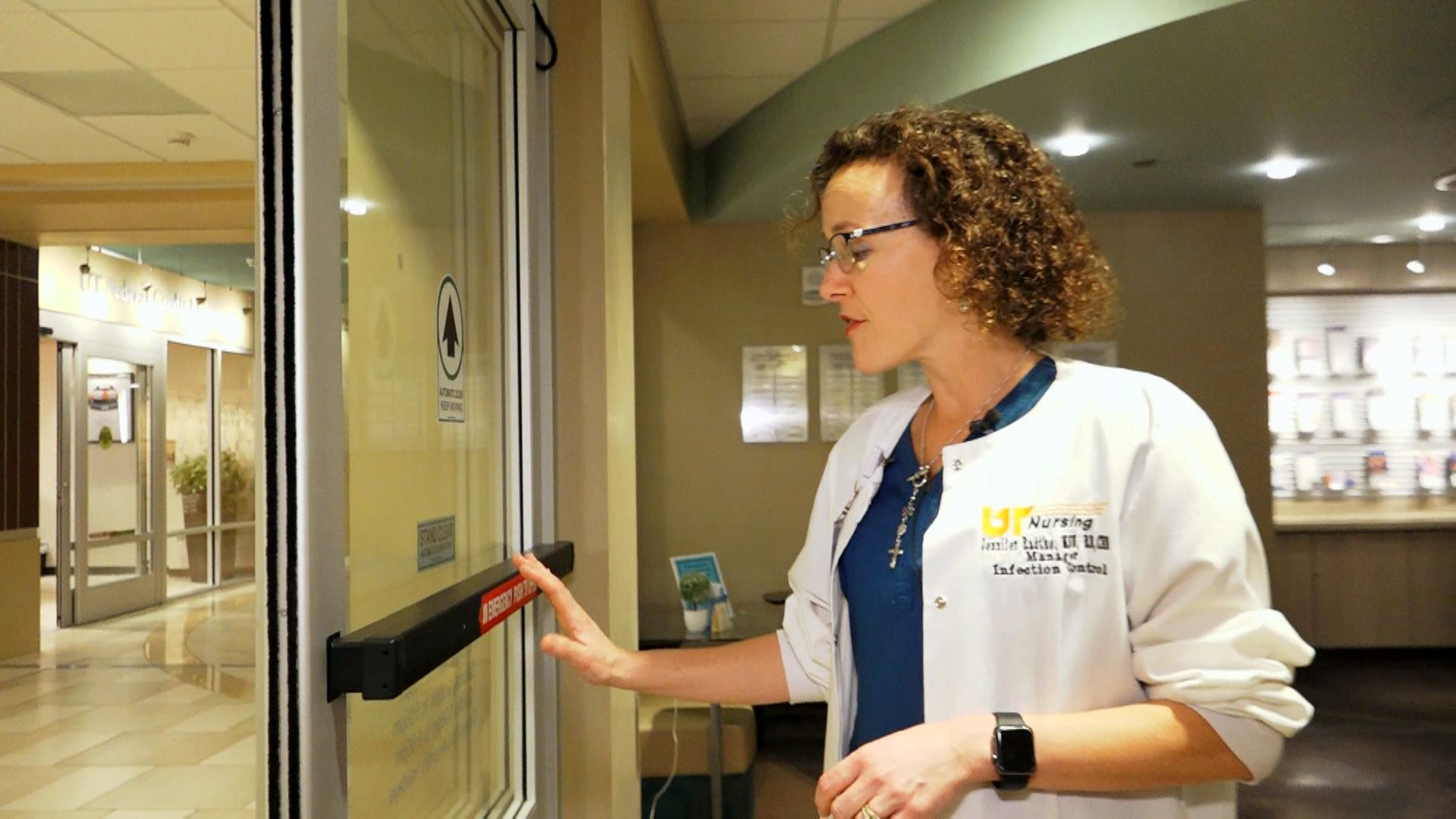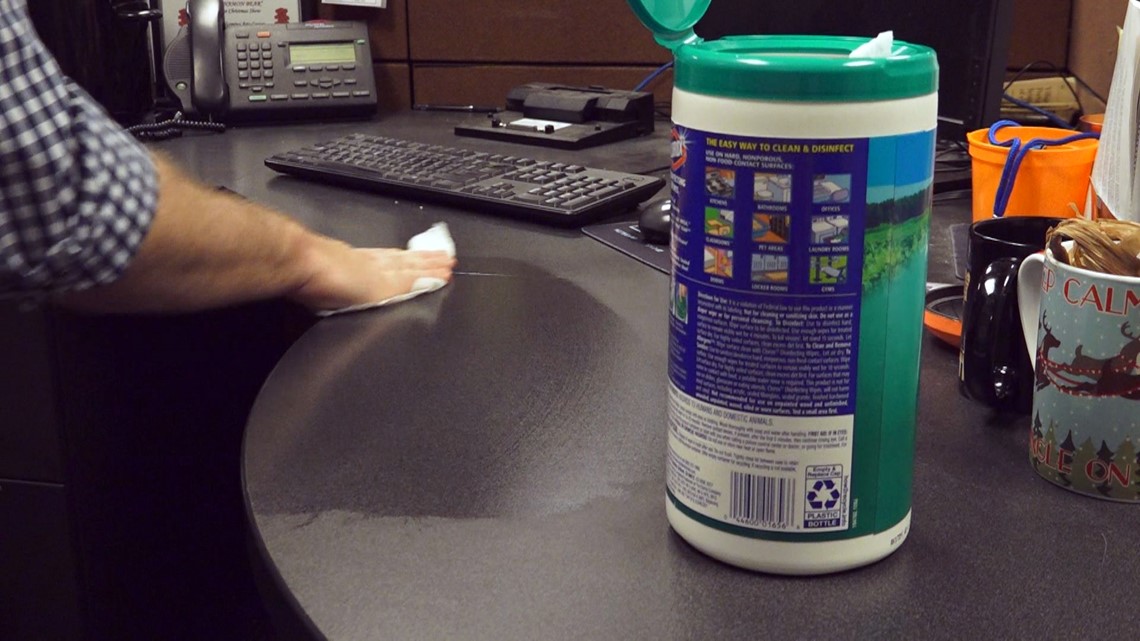As an extremely contagious flu hits widespread levels in nearly every state in the country, anyone with a job that involves interacting with other people faces some risk of catching the virus. There are some places at the office more prone to infection than others.
Jennifer Radtke, the infection prevention manager at UT Medical Center, says the flu is likely to live at the front door of any building.

"The flu virus can live on hard surfaces for up to 24 hours. So, think about any surfaces in the office that are touched by multiple people. Lots of people touch doors and door handles," said Radtke. "If you have a push door, I might want to push it with my elbow or lean in with my back as opposed to my hand, which will later touch my face."
Elevator buttons are another hot spot for the spread of germs.
If you're driving, wash your hands when you fill up. Gas pump handles are touched by many people and can fuel the spread of viruses.
At the office, the flu virus is easily spread among coworkers who share a telephone or computer.
"If I'm touching the computer, how long has it been since the mouse has been cleaned? Keyboards are also very dirty and have lots of places that are very hard to clean," said Radtke.


Radtke says even if you avoid the sneezes and coughs of coworkers, the virus spreads when an infected person merely breathes. That's because we all naturally say it and spray it when we breathe or talk.
"Think about when it is cold, you can see your breath. That mist, that fog, is made up of droplets caused by your breathing. You can't see it inside where it is warmer, but it is still there. So, just naturally talking, you're going to be expelling droplets," said Radtke.
Droplets from an infected person can hang in the air for up to 30 minutes, but they land on hard surfaces throughout the room and can survive a full day.
Radtke recommends cleaning hard surfaces with disinfecting wipes. Be sure the label on the wipes indicates it kills the flu virus.
Because there is no way to avoid any exposure to the virus, be sure to wash your hands frequently. Wash them thoroughly and long enough to kill viruses. An easy method is to sing the entire alphabet song while you scrub your hands before rinsing them with hot water.

When you sneeze or cough, cover your mouth with something other than your hands.
"My son would say you 'dab.' So, you are going [to cough] into your elbow so you're not fully contaminating your hands," said Radtke.
If you think you're getting sick, stay home until you are well.
"Maybe quarantine yourself to a room in the house so you're not exposing the others in your family. We know it is very contagious this year."
UT Medical Center is restricting visitation due to the flu virus. Anyone who shows signs of cold or flu is not allowed to visit patients. The same goes for anyone younger than 12 years old. The age restriction is because children often do not have the same flu symptoms as adults, so it can be difficult to tell if someone younger than 12 is sick.
"The other thing we say is if you are healthy, you may not want to come to the hospital. There is no place in town with more sick people than a hospital. If you are healthy and visit, we have masks and advise people to wear them to protect themselves from infection," said Radtke.

UT Medical Center reiterated the importance of getting a flu shot. Even if it does not prevent you from getting the flu, it often results in a less severe infection.
The Centers for Disease Control (CDC) insists flu shots are safe. Despite this reassurance, some people continue to express concerns about the Thimerosal ethyl mercury-based preservatives in some vaccines. If you are fearful of vaccines due to preservatives, ask for a single-dose vial of the flu shot. The preservatives are only used in containers that carry multiple doses.

